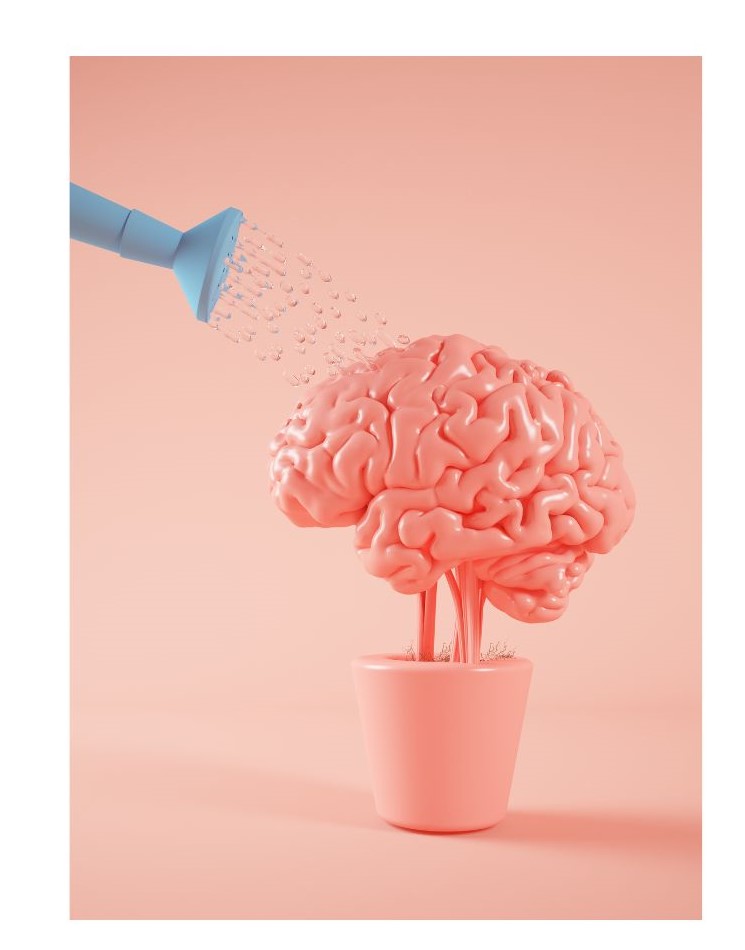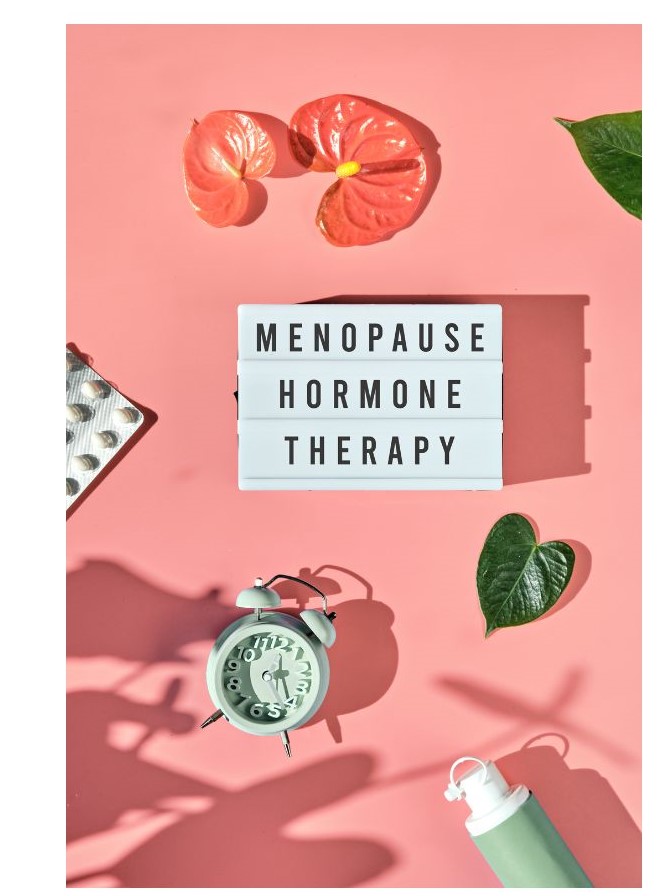Aging is a natural part of life, but cognitive decline doesn’t have to be. With the field of anti-aging medicine growing rapidly, there are now more options than ever to preserve your mind power and keep your brain healthy as you age.
Let’s explore your brain’s biggest struggles that normally come with age, why inflammation should be top-of-mind, and how hormone balance can affect your cognitive function.
While there are certainly medical interventions that can help slow or prevent cognitive decline, there are also simple steps that you can take at home to promote brain health and maintain your mental sharpness.
To join my inner circle and go deeper on all topics relating to hormones, health, and finding yourself as a whole woman—learn more about my holistic community!
The Importance of Brain Health in Anti-Aging
As we age, our brains undergo certain changes. The production of new neurons slows down, and connections between neurons may weaken. This can lead to a decline in cognitive function, including memory loss, difficulty concentrating, and slower processing speeds.
And while we typically think of these symptoms as the “normal” part of getting older, it’s often a sign of something more serious that’s happening beneath the surface.
Brain Inflammation and Cognitive Decline
Brain inflammation and hypothalamic inflammation are significant contributors to both neurodegenerative diseases like Alzheimer’s, as well as the “normal” effects of aging.
Inflammation occurs when the immune system responds to injury or infection, but chronic inflammation can lead to damage to brain cells and impair cognitive function.
The hypothalamus, a small but vital part of the brain, helps regulate various bodily functions, including mood and cognition. It’s a key part of the HPA axis which is a big player in your body’s stress response. Inflammation in this area can result in hormone imbalances, chronic illness, increased risk of heart disease, and other health problems (1).
Related: How to Fix Adrenal Fatigue + Cortisol Dysfunction in Women
What causes an inflamed brain?

Your brain works incredibly hard. It’s an energy-hungry powerhouse that controls not only your thoughts and feelings, but also orchestrates physical processes in the body too, like hormones, sleeping & waking, appetite, and metabolism.
The high energy demand of the brain also means it is sensitive to changes in energy supply and mitochondrial function (2). Your brain relies on healthy mitochondria to produce the energy it needs to function properly. Mitochondria are tiny structures within cells that are responsible for converting nutrients into energy. Other factors such as high stress levels, unhealthy diets, and lack of sleep can also exacerbate these changes.
For many women, hormonal imbalances are a major contributor to brain inflammation. This can occur during menopause or perimenopause, as estrogen levels decline often alongside mitochondria health, and glucose metabolism (3).
Symptoms of Brain Inflammation
Common signs include:
- Memory loss
- Difficulty concentrating
- Confusion
- Mood changes
- Trouble finding the right words
- Difficulty understanding conversations
- Challenges with executive functions like planning or organizing
- Changes in sleep patterns, or difficulty sleeping
Physical symptoms, such as headaches and fatigue, can also be associated with brain inflammation. These symptoms can range from mild to severe, and often worsen over time.
The Role of Lifestyle in Brain Health
One major factor in maintaining brain health as we age is our lifestyle choices. Regular physical activity, a balanced and nutritious diet, and adequate sleep have all been linked to better cognitive function and a lower risk of developing conditions such as dementia and Alzheimer’s disease.
Balanced hormones also play a significant role in brain health. As mentioned earlier, hormonal imbalances can contribute to inflammation in the brain, leading to cognitive decline. By keeping our hormones balanced throughout life, we may be able to mitigate this risk.
Additionally, avoiding harmful habits such as stress, smoking, and excessive alcohol consumption can also help preserve your mind power.
Read: Age in Reverse by Reducing Inflammation
Anti-Aging Medicine for Brain Health

Fortunately, there are steps you can take at home, as well as with the guidance of a holistic provider to reduce brain inflammation and promote better cognitive function.
- Balancing Hormones: If you suspect that hormonal imbalances may be contributing to your brain health issues, consider speaking with an integrative healthcare provider about hormone replacement therapy or natural alternatives.
- Eating a Nutritious Diet: Foods high in omega-3 fatty acids, antioxidants, and vitamins like B12 and D3 are particularly beneficial for brain health (4). Incorporate foods such as leafy greens, fatty fish, berries, nuts, and seeds into your meals to help nourish your brain.
- Regular Physical Activity: Regular exercise increases blood flow to the brain, which can help reduce inflammation and enhance cognitive function (5). Aim for at least 150 minutes of moderate aerobic activity or 75 minutes of vigorous activity each week, along with muscle-strengthening exercises on two or more days each week.
- Adequate Sleep: Quality sleep is crucial for brain health, as it allows the brain to clear out toxins and repair itself (6). Aim for 7-9 hours of sleep per night and establish a regular sleep routine to promote better rest.
- Stress Management: Chronic stress is a significant contributor to brain inflammation and cognitive decline. Practicing stress-reducing activities such as meditation, yoga, and deep breathing exercises can help keep stress levels in check.
- Mental Stimulation: Keeping your brain active and engaged can foster new neural connections and promote overall brain health. Reading, doing puzzles, learning a new language, or picking up a new hobby are excellent ways to stimulate your mind.
You might like: Full-Body Detox: How to Remove Toxins without Supplements
By incorporating these practices into your daily routine, you can take proactive steps to preserve your mind power and maintain cognitive function as you age. It’s important to note that while these home remedies may help promote brain health, they should not be used as a replacement for medical treatment or advice.
Supplements for Brain Health
In addition to lifestyle changes, certain supplements have shown promise in promoting brain health and reducing the risk of cognitive decline. These can include:
- Omega-3 fatty acids: found in fish oil and known for their anti-inflammatory properties.
- Curcumin: a compound found in turmeric that has been shown to have anti-inflammatory effects on the brain.
- Vitamin D: plays an important role in brain health and may help protect against age-related cognitive decline (7).
- Herbal supplements: Some natural herbal supplements, like ginkgo biloba and bacopa monnieri, have been shown to improve memory and concentration (8).
- Essential oils: Certain essential oils, such as rosemary and peppermint, have been found to enhance cognitive performance and can be used in diffusers or applied topically.
The Power of Social Connections
Another important aspect of brain health is our social connections. In fact, studies have shown that having strong relationships and a sense of community can protect against cognitive decline and promote overall well-being (9). This is because social interactions stimulate the brain and keep it active, similar to engaging in mentally stimulating activities.
The Science Behind Anti-Aging Medicine
Anti-aging medicine focuses on understanding the biological processes of aging and developing interventions to slow or reverse these changes. This field combines various scientific disciplines, including genetics, biochemistry, and neurology, to create comprehensive strategies for maintaining cognitive health.
One key area of research is the role of antioxidants in protecting brain cells from damage. Antioxidants neutralize harmful free radicals that can cause inflammation and cell death (10). Including antioxidant-rich foods and supplements in your diet, can potentially support brain health.
Another important aspect of anti-aging medicine is the study of neuroplasticity, the brain’s ability to adapt and reorganize itself. Engaging in activities that stimulate the brain, such as learning new skills or solving puzzles, can enhance neuroplasticity and protect against cognitive decline.
Being Proactive with Your Cognitive Health
At some point, most women experience symptoms of cognitive decline, but incorporating anti-aging medicine principles, making lifestyle changes, engaging in brain-boosting activities, and seeking professional and holistic support are all crucial steps in protecting our cognitive function. Aside from what you’ve been told to expect, worsening mental health symptoms, forgetfulness, or cognitive issues aren’t simply a “normal” part of getting older, and you do have the power to change your health for the better.


